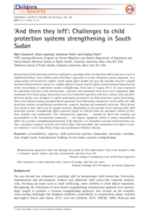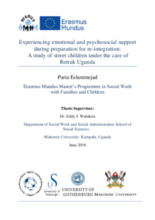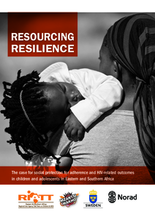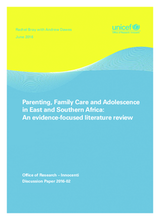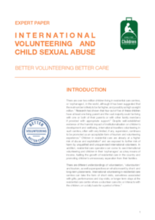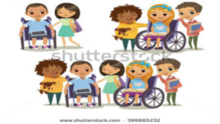Displaying 391 - 400 of 665
The research in this study explores how systems strengthening approaches promoted by humanitarian agencies are perceived to have transpired in South Sudan during the country’s transition to independence.
This report captures what has been accomplished in social service workforce strengthening in eight countries in Sub-Saharan Africa and highlights areas for future intervention. Progress made to strengthen the social service workforce within these countries is useful when reflecting on global trends and ways forward.
This thesis investigates children’s experience of psychosocial and emotional support of (nonparental) caregivers in residential facilities in preparation for their re-integration into family based care.
This report includes a literature, evidentiary, and policy review of social protection in the Eastern and Southern African Region.
This paper examines existing knowledge on raising adolescents in east and southern African countries, including Kenya, Malawi, Mozambique, South Africa, Tanzania and Zimbabwe. According to the report, and within the context of these regions, parenting is understood to be handled through extended community and family networks.
In this research paper Asnakech Tesfaye explores the expectations of Ethiopian children applying for an Australian Orphan Visa. Tesfaye’s research found children applying for visas expected to get better education, employment, material benefits and living conditions.
The aim of this mixed-method study was to explore the trajectories of leaving home, and views and experiences among children and youth in the Kagera region in Tanzania, who have lived on the streets or been domestic workers.
Using the DFID sustainable livelihood approach, this qualitative study evaluated the social capital being accessed by adolescent girls transitioning from two institutions in Harare, Zimbabwe.
This paper provides an overview of international volunteering, or “voluntourism,” and its potential vulnerability to child sexual exploitation, particularly in residential care centres.
This presentation by the Ministry of Community Development and Social Welfare, given at the Zambia National Consultation to Accelerate Care Reform, presents a situational analysis of children with disabilities in Zambia and explains why disability should be at the core of care reform.

